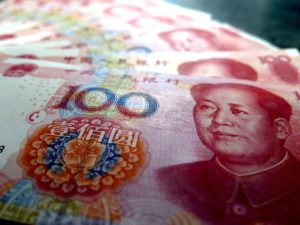I spoke yesterday at the 2010 U.S. China Business Conference in Atlanta. I was tasked with talking about the legal issues American businesses face in China and the legal issues Chinese businesses face in the United States. I was given ten minutes. The below is my speech: I am going to be talking about the legal issues facing U.S. businesses that do business in China and the legal issues Chinese businesses face when they come over here.
Since U.S. businesses pretty much need to deal with the same legal issues in China they need to deal with here in the United States — and then some — there is not nearly enough time for me to discuss specific Chinese laws.
So instead, I am going to talk about the general approach U.S. companies should take regarding their Chinese legal matters.
There are two keys to not getting burned by China’s legal system . The first is to not assume China’s legal system is anything like ours. The second is to not assume China’s legal system is any different from ours.
In other words, the real key is not to assume anything.
I have seen countless instances where American companies have encountered problems in China because they just assumed that China’s legal system is like ours.
A couple years ago, a pretty good-sized U.S. company called me to form their Wholly Foreign Owned Enterprise (commonly called a WFOE) in China. They talked with great pride of the half million dollar study they had just finished which showed the huge demand there would be for the business service they would be starting in China.
They were floored when I told them foreign companies cannot go into their proposed business in China without a Chinese joint venture partner. It had never even occurred to them that what was legal in the United States might be illegal in China.
Joint ventures present a great example of where American companies get into trouble for assuming China’s laws are just like ours. In the United States, owning 51% of a company pretty much means you control the company, and so Americans frequently just assume that if they own 51% of their Chinese joint venture they will control the joint venture.
The problem with this assumption is that it’s not based on Chinese law because in China, control of a joint venture in depends mostly on who has the right to appoint the Joint Venture’s Representative and Managing Directors.
And let me tell you something, I am convinced there is a school somewhere in China that teaches EVERY SINGLE Chinese business to give their American joint venture partners 51% of the joint venture company and control of the joint venture’s Board of Directors, and then, in return, the Chinese company extracts from the American company the right to be able to appoint the Joint Venture’s Representative and Managing Directors. The American company goes along with this, not realizing that even though it owns a majority of the joint venture, it has just given up its ability to control it.
Many years ago, I heard a story of an American who was renting an apartment in Shanghai. Now I am not even sure if this story is true or apocryphal, but it is such a good story to illustrate how Chinese judges and arbitrators view contracts it really doesn’t matter whether it happened or not.
It was a nice apartment, that this American was renting, and it had a really nice expensive office chair (high end apartments in China are virtually always rented out fully furnished). One day, the really nice office chair broke and became unusable and the American tenant kept asking his Chinese landlord to replace it. But that wasn’t happening.
The lease on the apartment eventually came up for renewal and the American refused to renew it unless the landlord put in writing that he would replace the really nice office chair. The landlord agreed and after the new lease was signed, he came by and put in a $2 metal folding chair.
What would happen in the United States if this tenant were to sue the landlord over the landlord’s failure to replace the office chair with something pretty comparable? Anyone know?
The tenant would win because the court would essentially write into the lease that the replacement chair had to be a good office chair like the one it was replacing. What would happen if the tenant sued the landlord in a Chinese court?
The Landlord would win because if you want something in your contract in China, you better put it in there.
Why is this chair story relevant? It’s relevant because American companies time and again fail to put enough into their contracts with Chinese companies. Instead, they just assume the courts or arbitrators will know what the parties intended and re-write their contracts accordingly. But it doesn’t work that way in China.
We had a company come to us after having received a large shipment of laptop bags that weren’t strong enough to hold a laptop. We called the Chinese company to ask about getting a refund and they told us that if our client had wanted a bag strong enough to hold a laptop, it should have paid 50 cents more per bag for one that could actually do that. This company should have specified in its contract that it wanted a bag that could hold x number of kilograms.
But if I had to pick one arena where American companies most often mistakenly assume China’s laws are like those in the United States, it would be in employment. There’s an old expression in the United States that employers can fire non-union employees for good reason, bad reason, or no reason at all. It’s the opposite in China, where there should be the expression that you can’t fire or lay off your employees for just about any reason not expressly set forth in your employee manual (a/k/a employee rules and regulations).
American companies also get tripped up in China when they assume they are not required to pay managers overtime or that they can use independent contractors. Almost all employees in China (Chinese and foreign) are entitled to overtime pay and If someone in China (Chinese or foreign) is doing work for you and they are not your maid or just coming to your house for a day or two to fix your plumbing, they are your employee and don’t forget how it will be for you to fire them.
On the flip side, American companies sometimes make the mistake of assuming everything about China’s legal system is different from ours and I will talk about this by way of an example.
A U.S. company forms its Wholly Foreign Owned Enterprise (a WFOE) in China and builds a big factory there. Then, with a couple weeks to go before its factory is set to begin operations, it learns that China is not going to let them import the key chemical needed for their product. This company had spent a year and a million dollars getting the United States environmental protection agency to approve this particular chemical in its product and they just assumed that because the US EPA had deemed this chemical to be safe it could use it in China without needing to prove anything to anyone there. It had never occurred to this company that China has its own environmental regulations and its own Environmental Protection Agency and would require this chemical go through its own testing. Does anyone think this US company would have thought it could import a chemical into the United States simply because the chemical was on a China approved?
But the biggest mistake American companies make in assuming Chinese laws are different from United States laws is when they assume China will not enforce its own laws against them because they are bringing a couple thousand jobs to China or because China is not enforcing those same laws against Chinese companies. Both of these assumptions are wrong. China is pretty much like the United States in that NOT following the law is a very dangerous way for anyone to operate a business.
What about the legal issues Chinese companies face when coming to the United States? Just take everything I have said about American companies in China and double it.
Chinese companies tend to have even less experience than American companies when it comes to dealing with foreign laws and they tend to be too inexperienced operating internationally to realize that they cannot handle their legal issues in the United States the same way they handle those issues in China.

























